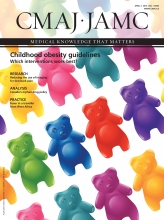Day 1, January 2013
It was a good start to a winter’s day. “You’re the best doctor EVER,” said the youngest sibling of someone I was seeing to offer a second opinion. The siblings were there to make sure I had the story right. The senior in the family was hyperventilating and clutching hands while strongly denying any stress. Missing this side of an illness had led to overprescribing of corticosteroids for a condition in remission these last several years. I called in my clinic psychologist; the family left with effusive thanks, smiles on their faces and a promise to return. It was simply a good day to be a doc.
Things took quite a different turn a few hours later. I was used to my prostate-specific antigen (PSA) level being just at or slightly higher than the age-related normal range, but 15.6 was way beyond normal. Both my paternal grandfather and my father had died of prostate cancer under less than ideal circumstances and at an age horribly close to mine. This time, I couldn’t blame my elevated rates on cycling as I had done in previous years — my bike had been put away for the winter.
I started to slide into a dark place: Is this it? Then the lights came on. A week before, I had been in Lake Louise skiing with Yves (who skis like a god). Inevitably, as a mortal, I had fallen. I don’t know how far I had travelled on my back, but I’d had an excruciating sensation of being ripped in half. When I finally ground to a halt, I was on my knees breathing deeply, trying to suppress a visceral agony from below.
Was that spectacular fall and perineal trauma driving up my PSA? Or was I deluding myself? Was 15.6 the real thing?
My urologist agreed that we could opt for a watch-and-wait strategy and some repeat testing. Two months later, I came in at 7.5; after six months, I was at a reassuring 3.8. Life was back on an even keel.

Image courtesy of Penelope Ormerod
A year later, I hit a PSA of 6, then 7. What now? Skiing doesn’t happen in summer, and blaming cycling for the sudden doubling was a stretch. I consented to some indignity and, despite not being “comfortably numb,” I had 12 spring-loaded shots to my inner manhood. I felt pretty confident that everything would be okay. My older horse-riding brother had been through three years of similar testing for similar PSA levels, and all of the biopsies had been negative.
Day 2, October 2014
One week after my biopsy, I was in Montréal with family and friends to see Australian Pink Floyd — a very fine tribute band. I had promised myself that I would not check any results until after the concert; stupidly, I had opened up my email beforehand and couldn’t miss the message in the subject line: “Biopsies show high grade AdenoCa.” No previous salutation or “we need to chat.” My first reaction was anger. I was ready for any result, but not delivered like this.
Luckily, the initial rage passed as my fatalist self took over and I packaged the news for later. I have loved Pink Floyd’s music for 40 years, so I had a fabulous couple of hours stepping back in time, swaying and singing along. My emotions ran high during some poignant songs about loss and death, and a very good friend passed me a tissue. The soft glow shed by hundreds of cigarette lighters in the darkened auditorium during the acoustic version of “Wish You Were Here” was almost too much to bear. This was like Day 1 all over again, but on a whole new level: wonderful high peaks at the concert against the low valleys of bad news.
Day 3, November 2014
And what now? Well-meaning male physician friends quietly explore the literature and seek second opinions, but there is no clear path through the red seas of missing data. I need a doctor to say, “This is the way to go,” but they can’t do that because they don’t know themselves, given the lack of evidence. They tell me the choice is mine — a modern-day medical cop-out — just when I need and would welcome a bit of good old-fashioned paternalism.
I wake up one morning, and I know. I face being sliced in half down below, but not on a spectacular mountainside. Emasculation is a certainty — they don’t mess around with high-volume high-grade cancers anymore. Then radiotherapy, feminization and god knows what other adverse effects. Who knew that “high grade” would mean something so different later in life?
I have gone through some staging, and the cancer journey takes shape, and my days as a traditionally functioning man are running out. Without doubt, “the ringing of the division bell” has begun. If the bone scan is okay, the knives will be sharpened. Although my best female friends tell me that I will still be a man, I harbour a picture of myself in a bar standing outside the “not sure” door to the washrooms. I have condemned my two sons to testing when they hit 40. I know I’ll overcome all of this in time, but for now I’m still at the stage of — and I make no apologies for how my Oxford-educated brother so eloquently summed it all up — “Shit, shit, shit, f…ing genetics.”











